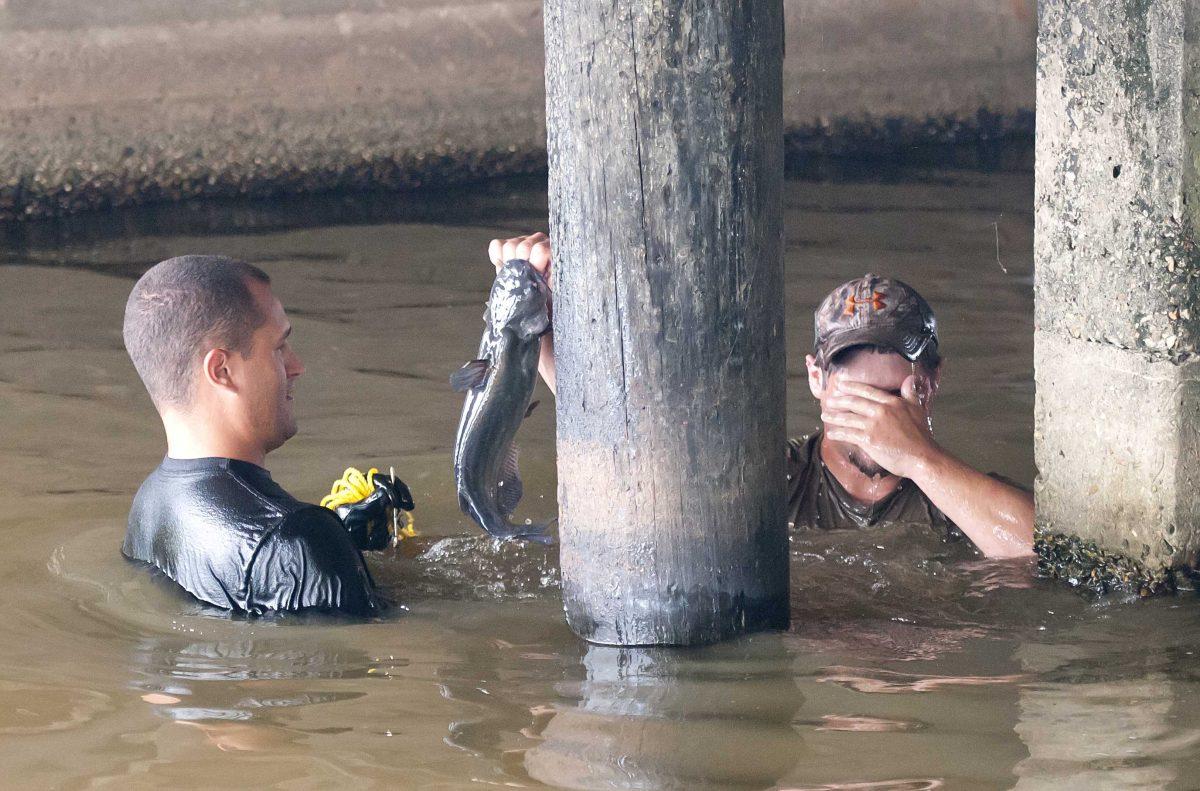Suitable weather, luck and timing are needed when fishing the LSU Lakes — bait, hooks and rods are optional.
On any given day, there are plenty of anglers fishing the lakes between LSU and City Park. The location and scenery make it a prime destination for leisure fishing in the capital city, though the lakes remain at risk from pollution and shallow depths.
On their day off, friends Jason Manwarren, 30, Kyle Ensminger, 23, and Raymond Eames, 23, go fishing the lakes.
After picking a desirable location, the men approach the water’s edge empty-handed, preferring to use the “noodling” technique.
“It’s basically looking for a hole [on the lake floor], putting your arm in there and seeing if there are fish in there,” Ensminger, the most experienced “noodler” of the bunch, said.
Manwarren said snakes and turtles also burrow in those holes. On a previous trip, they even found a gun.
The trio trekked waist deep into the silt-filled water, occasionally submerging to canvas the lake floor. After a extracting a few soda bottles, one of the men emerged with a sizable catfish — proof that there are fish in the lakes.
Though some anglers claim 70-pound fish roam the water, expect to catch something weighing significantly less.
Beside catfish and bass, blue gill and red ear sunfish, also known as brim, are other common fish caught in the lakes, said Michael Kaller, associate professor at the School of Renewable and Natural Resources. Kaller said the lakes are restocked yearly by the Louisiana Department of Wildlife and Fisheries.
However, the University lakes are in jeopardy.
Pollution as well as shallow depth threaten the stability of the lakes, including their ability to support marine life.
“The lakes receive a lot of runoff from the local community as well as being shallow,” Kaller said. “Just like people, fish need to breathe.”
Kaller noted dredging as well as resident involvement are the best solutions to these problems.
Before planning a fishing trip to the lakes it is important to note recreational fishing is illegal without a license. These can be purchased from Louisiana Department of Wildlife and Fisheries.
“Remember, the lakes should be a jewel,” Kaller said. “We need to promote the lakes as not just something to look at, but something to be enjoyed.”





